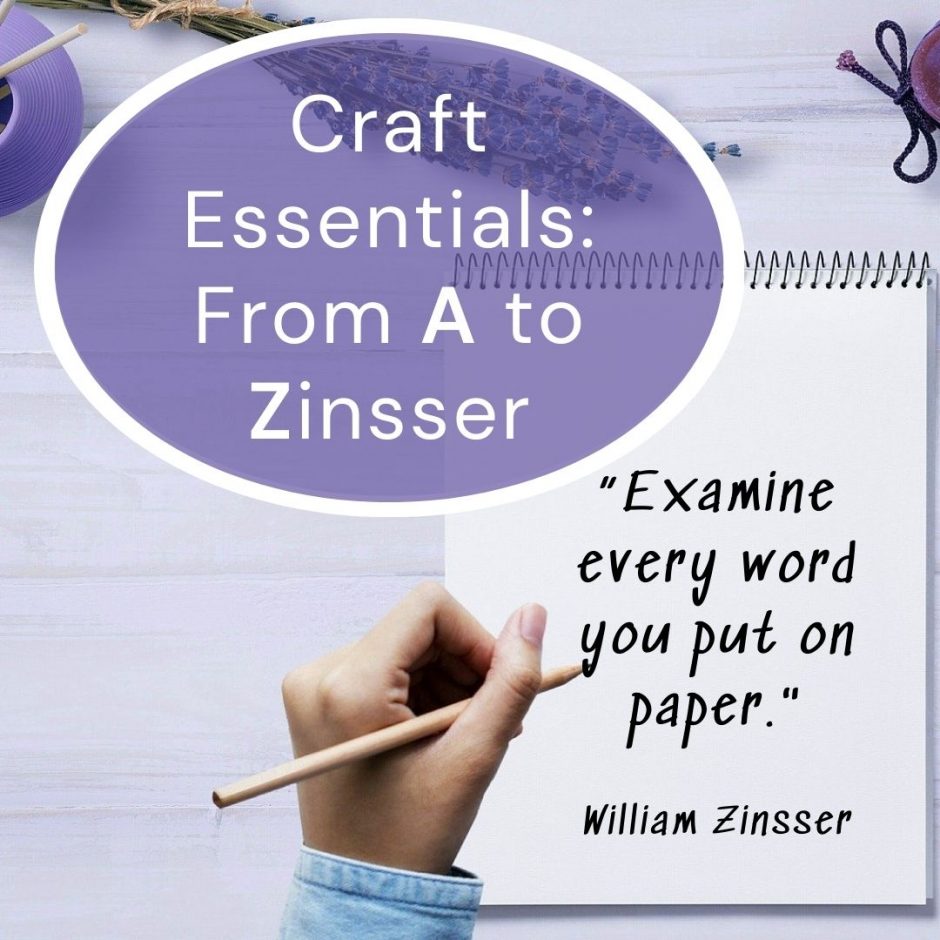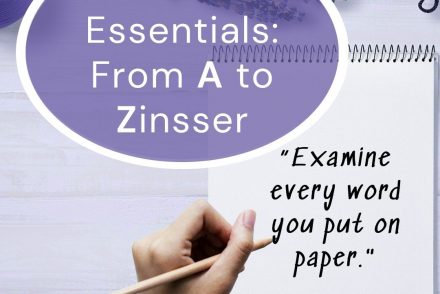“Don’t try to visualize the great mass audience. There is no such audience – every reader is a different person.”
William Zinsser
It’s a noisy world out there.
If every reader is a different person, the tendency to shout may be tempting. But if you’re going to be heard, you can’t just talk louder. Whether you’re writing or speaking, you’ve got to set yourself apart, by demonstrating you have something unique to say, in your own unique way.
- Do you know your “voice?” What makes it younique?
- Do you know how to discover it?
- Why is it important?
And perhaps the most important item to address is to ask yourself: “To whom am I speaking?”
In last month’s column we addressed a common failure: lack of clarity as to whom we are specifically writing. When I ask an aspiring writer who their target audience is and receive the (sometimes breathless) response, “Oh, it’s everyone. I know everybody will love this book,”
I must be certain the eye roll doesn’t accompany my response.
Finding Your People
The same principle is essential in understanding and using our voice. Writing well requires us to address a clearly identified reader. If you don’t know who you’re talking to how on earth will you know what examples to use, the tone, and the opportunity to speak into their issues? And when you write in a manner that tells them who you are, they find you.
I don’t write for Classic Auto magazine, or the Five-Minute Cuisine quarterly. I’ve never been invited to pen a feature column for Engineering Daily – and most likely, I shouldn’t hold my breath waiting for their call.
Why? They’re not my “people.” I don’t speak any of those languages.
I write on topics of interest to women 50-plus: marriage, empty nest syndrome and all things family related: , dealing with adult children, family feuds (conflict), aging well (don’t buy that rocking chair), second careers, and more.
Why? These are my people. I ARE one! I can relate because I’m in many of the same situations.
When we try to sound writerly, which is a foreign language to most people, we distance ourselves from the reader. We do it to sound more professional, more knowledgeable—more like a real writer.
It comes at a cost.
What’s the Value of Your Voice?
When we take a tone and speak in a formal manner that is foreign or unclear to our audience, we do it for ourselves, not the reader. At some point they figure that out. Trust is broken and the book is set aside. Rather than building a readership, we’re tossing them overboard.
In reviews for my first book, this belief was solidified. A few of the remarks included.
- “The writing was down to earth – helpful and practical, with humor, too.”
- “Not preachy, but a solid, biblically-based resource.”
- “The author writes in an approachable tone.”
This is my voice. My readers recognize me. Those that enjoy my approach will seek me out again. I won’t be everyone’s favorite; I don’t need to be. There are other voices, perhaps yours, which will draw them in and speak to them in a way that I can’t.
How Do You Discover Your Authentic Voice?
Let’s take a look at seven tips to help you write as the authentic individual you are.
- Describe yourself in three adjectives. Example transparent, goofy, and loyal.
- Imagine your ideal reader – who is he/she? We customize our voice for our audience every day – policeman who stops you for rolling the red gets a different approach than the teenager who rolls his eyes at you. To whom do you write? Describe him/her in detail including personality, hopes, needs, style, perhaps even culture, and age if you think it matters.
- Let your personal style shine. Clarity about who you are makes it easier to communicate the genuine article about you. What sets you apart for the reader? What do you have to offer?
- Leave the formal tone at work. We all live with a set of expectations and cultural norms that dictate what we say and how we say it – now more than ever before. Think about that last email you carefully crafted to the boss or the politically correct response you gave instead of going all in. Try writing it the way you felt it in the moment. Go commando and compare the two. Is it more the real you? Can you express it without being offensive or damaging the relationship?
- Ask your friends and family: “How would you describe me? What do I sound like? What are the words, phrases, or style that is consistent when I speak?” Ask for three adjectives. Then compare and identify patterns.
- Read, read, and then, read. How would you describe the style of your favorite authors? How consistent are they? What pulls you toward their work? Don’t copy the style, but know we often are drawn to those most similar to ourselves. Is that true for you?
- Write! And then read what you wrote. Be honest with yourself: “Is this something I would read and enjoy? Would I subscribe to this blog or buy this author’s book?” Have you curtailed trying to sound writerly?
“Don’t alter your voice to fit your subject! Develop one voice that readers will recognize when they hear it on the page, a voice that’s enjoyable not only in its musical line but in its avoidance of sounds that would cheapen it’s tone.“
William Zinsser

Deborah DeArmond Deb is a certified writing coach and award-winning author of five books. Her books often focus on family and marriage, covering relationship dynamics, communication, and conflict resolution. Her most recent wok is We May Be Done But We’re Not Finished (2021).
Deb’s published more than 200 articles in print and online, including a monthly column, for Lifeway Magazine. 200+ print and online articles published.
Deb helps writing clients achieve success using inquiry, humor, and a straightforward approach. Her clients describe Deb as “candid but kind” and skilled at helping “guide others to discover their answers and solutions to success.”
Website: debdearmod.com
Pinterest Deb DeArmond
Facebook Author Deb DeArmond





No Comments